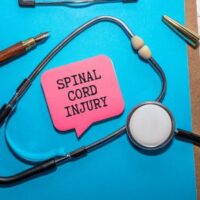Spinal Cord Injuries: Pursuing Fair Compensation After Life-Changing Accidents

A spinal cord injury from a car crash can alter life in an instant. Victims may face paralysis, loss of sensation, or chronic pain that affects every part of daily life. Beyond the physical impact, families often struggle with mounting medical bills and the uncertainty of what the future holds. In these cases, fair compensation isn’t just about money; it’s about stability, dignity, and access to the care you need.
Working with skilled West Palm Beach personal injury attorneys can make the difference between short-term relief and long-term security.
Understanding the Nature of Spinal Cord Injuries
Spinal cord injuries are among the most serious injuries a person can suffer because they involve damage to the central nervous system. They are often classified as complete (total loss of function below the injury) or incomplete (some function retained). Injuries to the upper spine can cause quadriplegia, while lower injuries may result in paraplegia. Even less severe injuries can still cause long-term pain, weakness, and limited mobility.
Because the spinal cord has a limited ability to heal, many people face lifelong challenges. The recovery process involves not only physical therapy and medical treatment, but also emotional and financial adjustments that affect entire families.
The Financial Reality: Lifetime Costs and Long-Term Care
Spinal cord injuries are medically complex and financially overwhelming. The National Spinal Cord Injury Statistical Center (NSCISC) reports that initial hospitalization and rehabilitation often exceed hundreds of thousands of dollars, with lifetime costs ranging from roughly two to five million dollars, depending on injury level and age at the time of the accident.
Those figures do not include lost income, caregiver costs, or ongoing medical management. Expenses often include:
- Hospitalization and surgery
- Long-term rehabilitation and physical therapy
- Adaptive equipment such as wheelchairs and lifts
- Home and vehicle modifications for accessibility
- In-home or professional caregiving
- Ongoing treatment for secondary conditions like pressure sores or infections
Because these costs stretch over a lifetime, accurate documentation and expert financial analysis are crucial to ensure that any settlement reflects both current and future needs.
Florida’s Legal Framework for Catastrophic Injury Claims
Florida’s auto insurance system follows a no-fault/PIP structure, meaning each driver’s insurance initially covers certain medical costs regardless of fault. However, to recover full compensation beyond those limits, an injury must meet Florida’s permanency threshold under Florida Statutes § 627.737.
Spinal cord injuries typically meet this standard due to their permanent, significant effect on mobility and bodily function. Still, success depends on clearly proving how the injury occurred, who was at fault, and what future care will be required. This is where strong evidence and expert coordination become essential.
Establishing the Full Extent of Damages
Florida personal injury law allows victims to recover both economic and non-economic damages in spinal cord injury cases.
Economic damages cover measurable financial losses, including:
- The cost of past and future medical treatment
- The cost of rehabilitation and therapy
- Lost wages and reduced earning potential
- Costs for mobility aids, accessibility modifications, and home care
Non-economic damages recognize the human impact of an injury, such as:
- Physical pain suffering
- Mental anguish
- Loss of independence or quality of life
- Permanent disability or disfigurement
- Impact on family relationships and emotional well-being
Because spinal cord injuries change nearly every aspect of life, proving the totality of these damages requires careful preparation and persuasive evidence.
The Role of Expert Testimony
Expert witnesses help bridge the gap between medical reality and legal proof. A comprehensive case often includes:
- Medical specialists like neurologists and orthopedic surgeons who explain the nature and permanence of the injury.
- Life-care planners who outline future medical and personal needs based on accepted standards of care.
- Economists who calculate lifetime costs and lost earning capacity.
- Rehabilitation and vocational experts who demonstrate how the injury limits daily activities and job opportunities.
Their combined testimony provides jurors with a clear understanding of the nature and extent of the accident victim’s damages which were caused by the accident.
Turning Complex Medical Evidence into a Compelling Legal Case
Spinal cord injury litigation requires more than medical records; it demands storytelling supported by science. Clear presentation of diagnostic imaging, treatment timelines, and expert opinions helps juries grasp the lasting consequences of such injuries.
Smith, Ball, Báez & Prather takes a compassionate, detail-oriented approach to these cases. The firm works closely with clients and their doctors to translate complex medical information into a narrative that shows not only what was lost, but what justice can restore.
Contact Smith, Ball, Báez & Prather
After a spinal cord injury, questions about your future can be as daunting as the injury itself. From medical costs to long-term care needs, the financial weight can feel impossible to manage alone. Our experienced legal team provides steady guidance through every phase of the recovery process.
Smith, Ball, Báez & Prather has built a strong reputation across South Florida for representing victims of catastrophic injuries with integrity and compassion. We focus on achieving results that allow our clients to concentrate on healing while we handle the fight for justice.
Contact Smith, Ball, Báez & Prather today for a free consultation and discover how our trusted Florida personal injury law firm can help secure your long-term recovery.
Sources:
Florida Statutes § 95.11 – Limitations on Actions
Florida Statutes § 627.737 – Threshold for Noneconomic Damages in Motor Vehicle Cases
Florida Department of Health – Brain and Spinal Cord Injury Program (2024)
CDC – Spinal Cord Injury: Data and Research (2024)
MSKTC/NSCISC – Traumatic Spinal Cord Injury: Facts & Figures at a Glance (2025)
Mayo Clinic – Spinal Cord Injury: Symptoms and Causes (2024)
